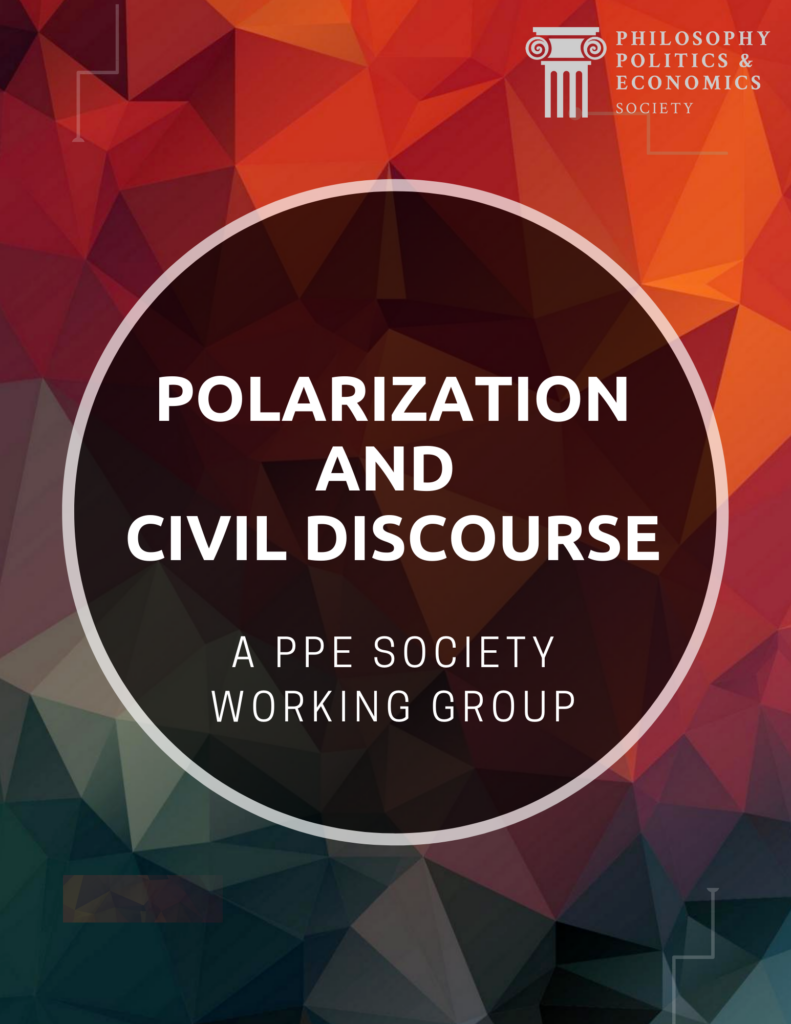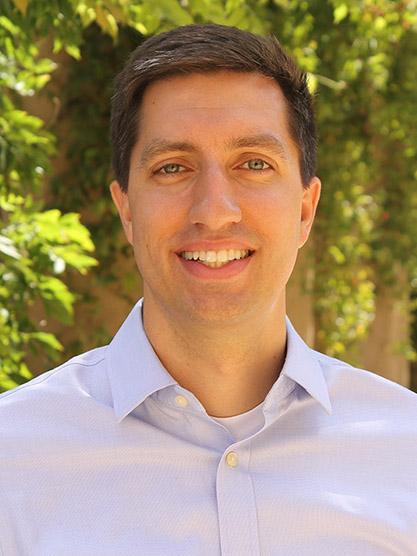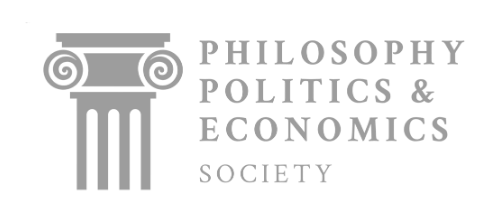Polarization and Civil Discourse
Co-Directors:
- Andrew J. Cohen (Georgia State University)
- Johanna Jauernig (University of Arizona)
Contact: PPE.Polarization@gmail.com
Goals:
- Gaining a better understanding of the phenomenon of polarization by bringing together perspectives from different disciplines.
- Identifying research gaps and exploring new interdisciplinary research agendas on polarization.
- Implications and Outreach: Exploring ways to foster civil discourse though conceptional analysis and with experiments testing interventions.
Members:
- Junior and senior researchers from philosophy, politics, economics, and psychology who have investigated the issue of polarization and are interested in pursuing joint work on the topic.

See: About | Upcoming Workshops and Events | Past Events
About:
Polarization is commonly perceived as a threat to civil discourse in liberal democracies. Thus, depolarization is seen as a worthy objective. Concentrated and interdisciplinary research can create a more nuanced evaluation that takes the trade-off between democratic contestation and willingness to compromise into consideration.
Researchers from various disciplines have investigated the cognitive underpinnings of polarization, its implications for the democratic process, normative principles that may (or may not) be violated in a polarized society, and methods of reducing it and its effects. We believe that much can be gained from a direct exchange of researchers from these different disciplines. Indeed, there is a clear need for that. Kant’s claim that “theory without empiricism is empty, empiricism without theory is blind,” is especially relevant here: Political theorists and philosophers provide conceptional clarity of the phenomenon of polarization. This conceptional clarity helps experimental research in economics, psychology, and philosophy to formulate and test hypotheses more productively. In turn, empirical findings inform theorizing about polarization. There is, though, such a proliferation of work on these topics, that no single academic can know all of it from the different fields of expertise. The need for an interdisciplinary group with its members able to provide each other input about their fields is thus clear. Members—and their readers and students—would benefit with improved knowledge and research.
Different disciplines focus on different aspects of rationality: Experimental economics concentrates on revealed preferences, taking preferences as rational as long as they are transitive and maximize the agent’s utility. By contrast, behavioral researchers often identify systematic irrationalities (i.e. biases). These different perspectives tend to get pitted against each other. Each has a certain skepticism towards the other discipline’s concept of rationality. Economists are seen as reductionist, behavioral researchers as exclusively focused on bias (the bias bias) and theorists in philosophy and political theory as negligent or incompetent in interpreting empirical findings. These ideological (or taxonomic) rifts slow research on complex social phenomena like polarization, which can only successfully be tackled by making use of multiple disciplinary perspectives and the way they conceptualize, measure, and investigate the phenomena. Together, we can enhance each other’s’ conceptual clarity and lead to more nuanced empirical investigation.
This Working Group is for anyone working on polarization, civil discourse, or democratic insecurities. We already have people from various disciplines investigating the cognitive underpinnings of polarization, its implications for the democratic process, normative principles that may (or may not) be violated in a polarized society, and methods of reducing it and its effects. We believe we can all gain from a direct exchange of ideas with people from multiple disciplines working on these topics. We hope to encourage interdisciplinary discussion and collaboration.
Upcoming Workshops and Events:
“The Myth of ‘Left-Right’ Ideological Polarization is Creating a Reality of Affective Partisan Polarization”
Wednesday, February 7, 2023, 12:00 pm ET
This event will take place via Zoom. (button link below).
Meeting ID: 821 6113 2425
Passcode: @9LvD#Qz8
Speaker: Verlan Lewis, Utah Valley University
Abstract: The idea that political thought and behavior can be usefully modeled on a uni-dimensional, “left-right” ideological spectrum is the “master theory” of the last 60 years of American political science research (Hacker and Pierson, 2014). In this talk, we argue that this “master theory” is inadequate because it is based on a myth. We cannot accurately or usefully talk about politics in terms of “left” and “right” because there is more than one issue in politics, but a uni-dimensional spectrum by definition can only measure one issue. Likewise, we cannot sensibly talk about an individual or a party “moving to the left” or “moving to the right” over time because the very meanings of “left” and “right” are constantly changing. The myth of “ideological polarization” in our society, and the monist illusion underlying it, is contributing to a reality of “affective polarization” between our two parties and undermining the pluralist understanding necessary for civil discourse.

